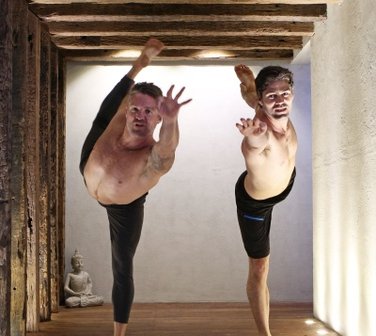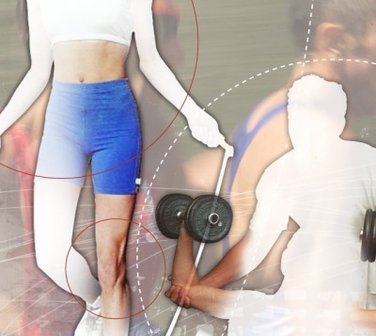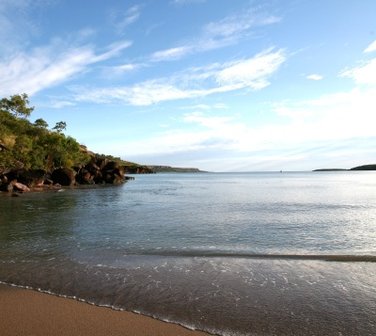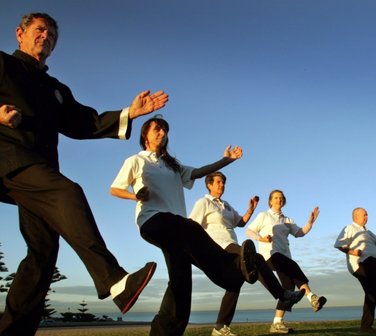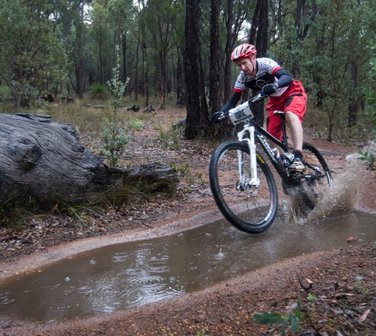Age is just a number
After six months sitting on the sidelines watching her nine-year-old son learn martial arts, Maureen Wilyman decided it was high time she joined in.
Fast-forward 15 years and Mrs Wilyman is now Sensei Wilyman with a black belt and a power-lifting State title.
The 64-year-old Shobukan Martial Arts instructor says she is stronger than she has ever been.
“Martial arts has kept me really young — mentally and physically, ” she says. “I don’t feel 64. When I first started I was a little overweight but it is has made me lean. For me it’s not about being fit, it is all about feeling strong.”
Strength isn’t the only benefit, the former hairdresser says. “I really enjoyed meeting a lot of new people, ” she says. “It also keeps you learning things all the time and it keeps your brain active. You walk into the dojo and switch everything else off, you’re there to do karate and that is a great feeling.”
Bitten by the exercise bug, Sensei Wilyman says she also joined a gym and today works out five or six times a week at the Shredded Institute.
“They both go hand-in-hand, I can’t do one without the other, ” she says. “It may sound a cliche but it is my life now, it is just what I do.”
Sensei Wilyman says the secret is making fitness fun. “It is no use if it is boring and same old, same old. I hate just plodding along, you’ve got to set yourself a little goal, reach it and then set yourself another.”
Recently having been awarded her second dan — two steps beyond a black belt — Sensei Wilyman practises what she preaches.
Three years ago she challenged herself by entering a power-lifting championship and took out the State title for her age group. “I had another goal a few weeks back, I wanted to dead lift 100kg and I achieved it.”
Age doesn’t matter, Sensei Wilyman says. Her advice for over-50s who want to get fit is simple: “If you want to do it, just go out and do it.”
Give it a tri
Join the legions of West Australians over 45 who are competing in triathlons. ALECIA HANCOCK reports.
If you’re looking for a competitive sport you can do well into your 70s, then consider running, cycling and swimming your way to fitness.
Nearly 50 per cent of all Triathlon WA members are over the age of 45, executive director Peter Minchin says.
“Once people hit their late 30s and early 40s, sometimes they find they’ve let themselves go a little bit, ” he explains.
“Often they are looking for that next thing to help them get fitter.
“They might do a fun run or a bit of cycling but they are often looking for a real challenge to work towards.”
Mr Minchin says one such challenge is the Ironman Busselton 70.3. As one of the biggest in the southern hemisphere, the event draws legions of new triathletes.
“It is a 1.9km swim, 90.1km ride and 21.1km run — and 46 per cent of the participants are over 40. For many people this event is on their bucket list.”
The popularity in the over 40s isn’t just unique to WA. USA Triathlon reports nearly 43 per cent of their members are over 40, with a few per cent continuing with the sport into their 60s and even 70s.
“You can train 20 hours a week, but if you just want to do five hours a week and race three times a year, then that is fine too, ” he says. Because of the flexibility, Mr Minchin says a triathlon can have as many as three generations competing in the same race.
“It is probably unique in that sense, ” he says. “There are a lot of clubs here where parents and kids have a training session and have fun alongside each other.”

Swimmers in a Triathlon.
Bodycare
ADAM FLOYD reveals how seniors can avoid ageing disgracefully.
There are two types of people — exercisers and non-exercisers. Today I’m talking to the non-exercisers — you know who you are. You know you should exercise but you don’t like it or just can’t get motivated. Let me try and convince you otherwise.
There is a growing amount of evidence that exercise is vital in the management of many chronic medical conditions. Resistance training is vital for people with osteoporosis and strength exercises help. Sufferers of diabetes and cardiovascular disease benefit from both cardio and strength exercises. There is now evidence that resistance exercise is beneficial in the treatment of depression and even more so in old people.
But I have a dicky knee, a bad back or some other injury I hear you say. In order to successfully commence a new exercise regime, seniors should consult an allied health professional first, such as your physiotherapist and often your GP as well.
If the exercises are prescribed correctly for your body then you are more likely to be successful and get results than if you just jump into something unaided. Almost all conditions and injuries will benefit from the right program.
TIPS TO KEEP YOU ON TRACK
- Train with a friend. Keep each other on track.
- Change your program every six weeks so you don’t get bored.
- Engage a personal trainer experienced in working with seniors.
- Join a group program like Living Longer Living Stronger.
- Set specific goals: These could be fitness (for a holiday), weight loss or injury rehabilitation.
All seniors know they should exercise but many don’t.
If you have injuries or niggles consult your local physiotherapist and get the correct exercises for your condition.
Grab a friend or join a group and get moving. If you don’t move it you lose it!
© The West Australian
